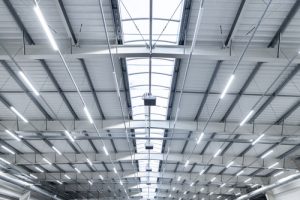 In manufacturing and industrial environments, proper lighting is a crucial aspect to consider. It not only ensures optimal visibility but also contributes to the overall safety and productivity of the facility. With advancements in lighting technology, there are numerous design solutions available in the market. However, choosing the best design solutions can be a challenging task. This blog post aims to explore various factors that should be considered when selecting the perfect lighting design solution for manufacturing and industrial settings.
In manufacturing and industrial environments, proper lighting is a crucial aspect to consider. It not only ensures optimal visibility but also contributes to the overall safety and productivity of the facility. With advancements in lighting technology, there are numerous design solutions available in the market. However, choosing the best design solutions can be a challenging task. This blog post aims to explore various factors that should be considered when selecting the perfect lighting design solution for manufacturing and industrial settings.
Understanding the Lighting Requirements
Before diving into the various design solutions, it is essential to understand the specific lighting requirements of the facility. Assessing factors such as the size of the space, the type of work being performed, and the color rendering requirements can help in determining the appropriate lighting design solution. For instance, high-bay areas with tall ceilings may require fixtures with a higher lumen output, while areas with intricate tasks may benefit from focused lighting solutions.
Efficiency and Energy Savings
In manufacturing and industrial settings, lighting tends to be one of the largest energy-consuming aspects. Therefore, selecting energy-efficient lighting solutions is paramount not only to save costs but also to lower the carbon footprint of the facility. LED lighting is a popular choice due to its high energy efficiency and long lifespan. Upgrading to LED fixtures can significantly reduce energy consumption while ensuring bright and reliable lighting.
Lighting Controls and Flexibility
Having the ability to control and adjust lighting levels is essential in manufacturing and industrial environments. Lighting controls, such as occupancy sensors and daylight harvesting sensors, provide the flexibility to adjust lighting levels based on occupancy and available natural light. This not only enhances energy savings but also allows for a more comfortable working environment. Additionally, dimming capabilities can be useful in areas where different tasks require varying levels of light.
Durability and Maintenance
Manufacturing and industrial environments are often characterized by harsh conditions, such as high temperatures, humidity, and exposure to dust or chemicals. Therefore, selecting lighting fixtures that are durable and resistant to these conditions is vital. LED fixtures are known for their robustness and ability to withstand challenging environments. They do not contain fragile elements such as filaments or glass, making them less susceptible to damage. Additionally, the long lifespan of LED fixtures reduces maintenance requirements, decreasing downtime and costs associated with replacing bulbs.
Occupational Health and Safety
Proper lighting design is crucial to ensure the safety of workers in manufacturing and industrial settings. Insufficient lighting can increase the risk of accidents and decrease productivity. Different work areas may have specific lighting requirements. For example, areas with fast-moving machinery may require bright, evenly distributed lighting for better visibility, while areas dedicated to quality control may require higher color rendering accuracy. Understanding these specific requirements and selecting appropriate lighting solutions can significantly enhance occupational health and safety.
Environmental Impact
When selecting lighting design solutions for manufacturing and industrial settings, considering the environmental impact is essential. Opting for energy-efficient fixtures not only reduces the carbon footprint of the facility but also aligns with sustainability goals. Moreover, choosing fixtures that are manufactured using environmentally friendly materials and can be easily recycled at the end of their lifespan contributes to reducing waste and promotes a circular economy.
Cost Considerations
While considering lighting design solutions, cost is undoubtedly an important factor. However, making decisions based solely on upfront costs may not always be the most beneficial choice in the long run. Although LED lighting fixtures may have a higher initial cost, their long lifespan and energy efficiency lead to significant cost savings over time. Moreover, potential incentives and rebates offered by energy-saving programs can further reduce the initial investment.
Conclusion
Choosing the best lighting design solutions for manufacturing and industrial environments requires careful consideration of various factors. Understanding the specific lighting requirements, prioritizing energy efficiency, considering durability and maintenance needs, ensuring occupational health and safety, and assessing the environmental impact and cost considerations are key elements in making an informed decision. By carefully evaluating these factors, facilities can select the most suitable lighting design solutions that optimize visibility, productivity, and safety while minimizing energy consumption and environmental impact.

